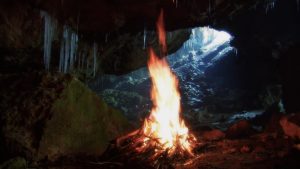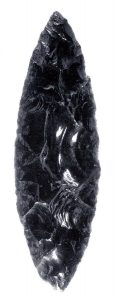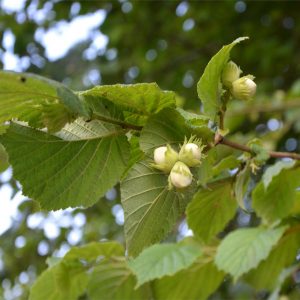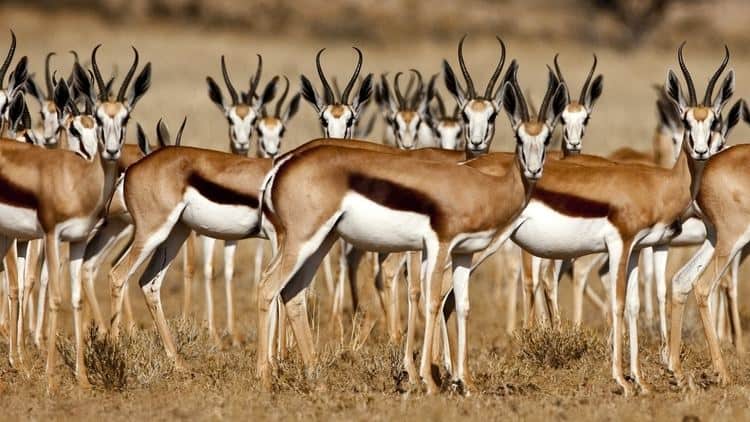#Culture
Asha and the Washerwoman’s Baby: A Short Story
An exiled neanderthal girl encounters the aftermath of a battle between her own people and a band of modern humans, and is faced with a terrible decision.
Published

See the Story Index for Wael Abdelgawad’s other stories.
An exiled neanderthal girl encounters the aftermath of a battle between her own people and a band of modern humans, and is faced with a terrible decision.
MIDDLE PALEOLITHIC ERA (100,000 YEARS AGO)
WESTERN EDGE OF THE ARABIAN PENINSULA
The Washerwoman’s Sound
Keep supporting MuslimMatters for the sake of Allah
Alhamdulillah, we're at over 850 supporters. Help us get to 900 supporters this month. All it takes is a small gift from a reader like you to keep us going, for just $2 / month.
The Prophet (SAW) has taught us the best of deeds are those that done consistently, even if they are small. Click here to support MuslimMatters with a monthly donation of $2 per month. Set it and collect blessings from Allah (swt) for the khayr you're supporting without thinking about it.

Since then she had watched many bands of Slender Ones coming ashore from the shallow Western Sea, which offered numerous land bridges at low tide. Over time she’d gotten used to their appearances. They were a different kind of people, that was all, just as elephants or ravens were different, yet still people.
As the washerwoman worked, she made a magical sound with her mouth, causing her voice to rise and fall rhythmically. Asha had no words for it, as her people – the Old Ones – did not make such sounds. It was mesmerizing.
She’d been tracking this band since they came ashore. Fat Deer had once told her that Slender Ones had been crossing the Western Sea for three generations, wading across at low tide. They were vicious, and always killed Old Ones on sight, or so the stories said. Asha had her doubts. Still, it was foolish to get so near. But she was restless and so lonely that she sometimes felt it as a physical thing, choking her.
Also, these people were fascinating. Unlike her own people, whose cultural taboos and rigid thinking frustrated Asha deeply, the Slender Ones were inventive. They carried stone-tipped weapons and lava knives, transported water in gourds and food in pouches, and moved from place to place.
Asha herself had conceived of many of these innovations, and had been constantly chastised by Fat Deer. At the age of seven summers she suggested that the clan move to higher ground in summer, to enjoy cooler weather and avoid depleting local food sources. Fat Deer countered that they might run out of water along the way. Asha pointed out they could carry water in gourds. But that was taboo, since carrying water would anger the river gods.
River gods. Hah. Even as a fledgling girl she’d scoffed at such ideas. She could see with her own eyes that water fell from the sky, gathered in the mountains, and ran into the rivers. When the winter was wet, the river was higher. If a person was foolish and swam when the water was high, he might drown. If Asha wanted to catch a fish, she would silently dangle her arm in the cool shallows under some tree roots… These were all predictable natural processes. What did imaginary gods have to do with any of it?
Asha’s Na – her mother – begged her to stop speaking of these things. The clanspeople were rolling their eyes in fear at Asha’s strangeness, and Na feared they might crush Asha’s head between two rocks.
One summer, after finding a broken obsidian knife left behind by a Slender One, Asha taught herself to make one, secretly. It took many tries. She could shape the obsidian by striking it with a piece of sandstone. But every time she reached the final stage of sharpening the edge, the thing fractured. Finally she had the idea of pressure flaking it – simply pushing gently on it with the sandstone, stroking it to create a sharper edge. It worked. From then on she carried the blade beneath her furs, strung around her waist. Let anyone try to kill her. They’d be in for a surprise.
In the end, rather than crush her head, her people merely exiled her, letting Na live and remain with the clan as part of the bargain.
That had been three summers ago. Now she was ten fingers and two summers old, living alone in a small cave in the lip of a crater, just above a salt pond. Her Na had since died of a wasting sickness, and there was no one she cared about anymore. She was utterly alone, with no one to talk to but the wind, and no one to reply but her own busy mind.
Animal gods
Asha took a step forward, wanting to hear the washerwoman’s sound more clearly. Her spear caught on a branch, making the leaves rustle. The washerwoman looked up sharply.
Knowing she’d been spotted, Asha smiled and waved. Perhaps the woman would not raise the alarm. Perhaps she would see that Asha was a person just like her.
I know I am shaped differently, Asha wanted to say. But I am like you, don’t you see? I carry a spear, a knife and a pouch. I think like you, I act like you. Don’t betray me.
The washerwoman stared. Asha’s people prayed to Deer, and if Asha had believed in such things she would have called upon Deer in that moment, asking for the woman to truly see her. But she had never believed in the animal gods.
Once, before her exile, she’d been foraging with Na. Msha was a baby then, and Na had left her behind with a sister-na named Blue Lips. They came across a dying deer that had been badly mauled. Na read the ground and said that a cave hyena had mauled the deer and snatched its calf, leaving the mother to die. Na said a prayer to the deer, then killed it in an act of kindness. Deer Clan did not eat deer meat, so they left the carcass to rot.
“Why?” Asha asked, “couldn’t the deer protect herself? Isn’t she a god?”
“Her dream self is a god,” Na replied. “But her body is not.”
“Then why do we pray to Deer for good foraging, and to bring rain? Can the dream self do that?”
But Na only told her to hush, and never to ask such questions, especially where others could hear. Asha knew that all the clans worshiped animal gods, but she vowed in that moment that she would never worship a creature that bled like her, and could not save its own offspring from death.
Worms, Snails and Pears
The washerwoman shouted, pointing. Two hunters hustled over the rise and charged across the river. Their intent was clear.
Asha faded into the forest. She knew these paths, and was light on her feet. The hunters would never catch her. Indeed, within a short time, finding no trace, they gave up and returned. Asha waited, resting in the shade of the undergrowth, then returned to the river. It was a stupid thing to do, she knew. But curiosity burned with her like the embers of a clan fire.
The Slender Ones were gone. Standing amid the crushed grass and litter of the Slender Ones’ abandoned campground, Asha studied their tracks. They were following the course of the river, moving toward the foothills. This was not good. If the Slender Ones continued like this, they would encounter the squat of Asha’s former people, Deer Clan. The meeting would be disastrous. Deer Clan possessed no weapons but stones and crude clubs, while the newcomers carried knives and stone-tipped spears. Deer Clan would be massacred.
So what, she thought bitterly. It’s not my problem.
She spent the afternoon foraging for nuts on the banks of a quiet tributary of the larger river. She loved hazelnuts, but would have been happy with beechnuts or earth nuts. In the stream bank she looked for mussels, beetle larvae, or newts. A fat frog came close enough to catch, but she was far from home, with no fire, and she didn’t like raw frog, so she let it go. She found worms, insect larvae, and several snails, all of which she promptly ate.
She sometimes found berries in the silty soil. These were prized treats. As she foraged, she found herself trying to imitate the washerwoman’s mouth sounds. The woman had been speaking words, but changing her vocal tone and drawing the words out. “I aaaaaaam a girl,” Asha experimented. “All aloooooooone in this wooooooooorld. But I don’t neeeeeed anyone.” Tears came to her eyes and she wiped them away bitterly. What a useless attempt. Her sounds weren’t anything like the washerwoman’s.
She went back to foraging, and soon found a stunted pear tree that bore some small fruit. She devoured three pears on the spot, letting the juices run down her chin. Sated, she stuffed a few more fruits into her shoulder pouch.
She knew what she had to do, though she did not want to do it. With a sigh, she washed her hands and face, applied fresh mud to her skin, and set off toward Deer Clan’s squat.
People of the Deer
The Slender Ones were following the river, which would bring them to Deer Clan’s territory in three days. Asha instead went directly over Rhino Ridge, and arrived after sunset, where she found the clan gathered around a fire by the cave mouth. The hunters had alighted with rabbits and fish, for her people did not have the means or knowledge to kill ibexes. She could have offered to teach them, since she had learned to do so herself since her exile. But they would never accept that knowledge.
They were her people in the sense that they looked like her. Heavily muscled bodies, tan skins, prominent brow ridges with receding foreheads. Light colored eyes, and some with hair the color of straw or fire. Normal people. Her people. Yet her mind was so different from theirs. Ideas came to her like fireflies in the darkness. Try this, they said. There is a better way. She questioned everything, and this frightened the Old Ones, for they were a people of tradition, placing their footsteps precisely on the paths left by generations of ancestors. Why was she so different? She did not know.
“Greetings to the people of the deer,” Asha called out. “For they do not stumble…”
“And do not kill without cause,” two or three voices replied in the ritual way.
Asha saw Fat Deer peering in her direction. He was a grizzled old man, white-haired and bow-legged, his bone-colored beard hanging to his chest. He was also her grandfather. “Who is there?” he called.
She stepped into the light. Many of the clan gasped. Two hunters hefted their clubs. To Fat Deer’s credit, his face remained impassive. “You are not welcome, little demon. Go to your haunts.”
“I came to tell you that a band of Slender Ones approaches. I suggest you flee.”
“Why do you care?”
Why did she care? “I have no one else,” she said at last. “And shouldn’t a granddaughter care for her grandfather?” With that she faded into the darkness. She’d done her duty.
Firelight and Cave Paintings

The firelight shadows took the forms of her Na and her little sister Msha. She remembered Na’s large blue eyes, her calloused hands washing Asha’s hair in the river, the heat of her thick body, even the taste of her milk. And Msha – her perpetual sense of responsibility, always chastising Asha for her recklessness.
Msha’s death had been the catalyst that spurred Asha’s exile. Not her death as it was, but what Asha did that day. When she saw the hyena rending Msha’s body, she leaped upon it, stabbing it in the neck with her knife. She was badly injured, but she killed the beast. She could not save Msha, however, as the hyena had torn one of the little girl’s legs off at the knee.
Asha’s people were horrified and frightened. It was not only that the making of a knife was taboo, but that a child of eight summers had slaughtered a cave hyena. That was the point at which they decided she must be a demon or a god.
So now even she was a god. She snorted in disgust. Well, forget the Old Ones. She didn’t need them. For three summers she’d fed and clothed herself, even bringing down ibexes on her own. She told herself, as she had countless times before, that she was strong. She could bear this lonely existence. The nights, though… these solitary nights in this cave, with nothing but the firelight and shadows. The nights galled her, making her feel insignificant, and giving the lie to her claims of self-sufficiency. The thought of a lifetime of such nights terrified her.
Looking at the shadow shapes on the cave wall, she remembered Roshin, Deer Clan’s most talented painter. Using red and yellow ochre, the same substances that Deer Clan used to protect their skin from insect bites, Roshin created amazing scenes on the stone walls of the cave. With only his fingers, he created lifelike representations of ibexes, lions, baboons, and Old Ones themselves. Some in the clan became afraid, believing that the images might come to life, so Fat Deer made him stop.
What came to Asha’s mind now was the way Roshin used to mark every painting by smearing ochre over his entire hand, then pressing his hand to the wall, leaving behind its image. “This is my special mark,” he’d say proudly. “It says, Roshin. Everyone will know that I painted this.”
There was something to this memory. Asha felt it tugging at her. Roshin’s special mark. So everyone would know he’d made it. His maker’s mark. She tried to follow the line of thought, but her eyes were as heavy as the sides of a mountain. Pulling an ibex skin over herself, laying her head on a pillow of rabbit furs, she slept.
The Washerwoman’s Baby
The next day she followed the path the Slender Ones had taken. She wanted to spy on them again, and maybe hear the washerwoman making the mouth sounds. Their trail was wide. It was obvious from their tracks that they were moving slowly, burdened with children and elderly ones. Asha proceeded cautiously, not wanting to stumble into their new campsite.
Coming around a bend in the river she paused, detecting a foul odor. The wind gusted and now the smell came much more strongly. It was the stench of death. She hurried ahead, into a riverside meadow. What she found stunned her. The Slender Ones lay dead in a meadow, all of them, their bodies crushed and torn. Not only men, but women and children. The meadow was soaked in blood. Thousands of flies buzzed and crawled, and vultures feasted on the dead, tearing at their faces and hands. Asha ran into the meadow, screaming and waving her arms, and the vultures reluctantly flew away.
The stench of feces and bile pushed into her throat, gagging her. Here and there Old Ones lay dead as well. There was Fat Deer, with five spears protruding from his body, including one in his eye.
This was her doing. Rather than fleeing as she had told them to do, Deer Clan had ambushed these people in the middle of the night, coming upon them in their sleep. It was unthinkable. Who ever heard of Old Ones committing a massacre?
Asha might have fled in that moment, might have run madly in any direction. But a sound stopped her.
She looked around wildly. Had some Slender Ones survived? Were they returning to kill her? But there were only flies. There again: a muffled wail. By the Deer, it was a baby’s cry. Asha prowled the meadow, stepping over the bodies, until she found the dead washerwoman. One half of the woman’s skull was caved, brains spilling into the grass. The sound came from beneath her. Asha rolled the woman over. Partially trapped beneath her in some sort of cloth sling, almost suffocating, was the washerwoman’s baby.
Able to breathe fully, the boy – for so it was, a boy of one summer – screamed like an angry cat. He was black skinned like his people, and healthy. Though his features were flat and smooth like all Slender Ones, he was handsome. Asha eased him out of the sling. He was so small and light, in spite of his chubby arms and legs. She rocked him, cooing, until his screams subsided into gasps.
The boy’s skin was hot. She carried him to the river, where she dipped her fingers into the water and dripped it into his mouth. He sucked greedily, and Asha realized he was hungry. Remembering what she’d seen mothers of her people do, she pulled a pear from her pouch, took a bite, chewed it, then spat the sauce onto her fingers and fed it to the boy. Soon he was satisfied. His eyes gazed into hers for a time, then his lids fluttered, and he slept.
Pursuit
If she kept this child, she would never be alone. But… it would be a terrible injustice. He would be a perpetual exile, like Asha. She could not impose that burden on him. He had committed no crime, and she could not punish him. He deserved a life with his own people.
A large band of Slender Ones had come ashore half a moon ago, heading north. They too had been moving slowly. Perhaps if she ran, she could catch them. They would take this child. They must.
She returned to the site of the massacre just long enough to snatch the washerwoman’s sling, averting her eyes from the feasting vultures as she did so. Easing the baby into it, she draped it over her shoulders, and set a course for home. At her cave, she stuffed as much dried ibex meat into her pouch as she could carry. Without delay, she began a fast march north, maintaining an easy lope.
She ran for two days, stopping only to feed and clean the boy. This didn’t bother her. She was fit and strong, and had occasionally run for longer than this when pursuing an ibex herd. This was a beautiful land, especially in the coastal areas, and as she ran through the rolling grasslands she admired the sweep of the clouds across the sky, and the way their shadows moved across the land like a herd of spirits. Occasionally she encountered stands of shady woods, where she stopped briefly to rest. The third day she came across a vast herd of gazelles moving across the savannah, blocking her way. They ignored her, and she sat on a boulder and tended to the baby, watching them.
They were beautiful animals, with sleek bodies marked by a single dark stripe along their abdomens. The males sported gently curving single-pronged horns. They were smaller than ibexes and impalas, but Asha had never tried to catch one because they were fast runners and tremendous jumpers. At the moment, however, they were taking their time, grazing as they went.
There was a clan of Old Ones, Asha knew, who worshiped Gazelle. Other clans worshiped Bear, Monkey, or Crow. But the gazelles too were creatures of the earth. Some fought with others. Would gods kill one another? If they did that, the world would be in chaos. It seemed to Asha that if the animal gods fought, they might also enact vengeance on the people who worshiped the opposing god, until all the people were dead. But that didn’t happen.
She stroked the baby’s exquisitely smooth head, and he cooed at her. No, no, no, she thought, still pondering the problem of the gods. If a deity existed then it must be a single Deity only, not ten fingers or ten times ten. But who was that Deity? How did he communicate with the people? How should one acknowledge him? What were the rites by which one should show dedication? Asha had no idea.
Day three, and she ran on. Sometimes the baby reached to touch her face. He often smiled at her now. She wanted so badly to keep him. He would be her son, and he would love her. But she could not! It was not right.
On the fourth day she reached the edge of the northern desert. She saw the Slender Ones’ tracks leading into the waste. Where were they going? She didn’t want to follow. Her entire body ached. The glare of the sun off the sand was nearly blinding. She took a breath, and ran on.
This was insanity. What would happen when she caught up with the Slender Ones? They would kill her. No, she argued with herself. They will see that I saved one of their own, and will be grateful. And maybe they will see that, like them, I carry a spear and wear ibex skins. Maybe they will welcome me and take me in. In any case there was no choice. She must return the baby.
Maker’s Mark
She caught them that afternoon as they decamped in the shade of a cluster of boulders. Watching them from a distance, she hesitated. There were numerous hunters, all armed with spears, reclining as they drank water and ate. She could neither fight them nor outrun them.
As if reminding her of her duty, the baby gurgled and made a sound that might have been, “ma” or “na.” Surely he did not mean her. No, he was too young. They were only random noises. She moved her feet. One foot in front of the other. Moving forward.
They saw her. Several hunters leaped to their feet and approached her confidently. Their bodies and faces were painted with white ochre in intricate designs, and they wore animal skins that hung from their waists to their knees. A few hefted their spears, balancing them in their hands.
Asha dropped her spear and held the baby aloft, calling out. “He is one of yours! I saved him!”
The hunters lifted their spears.
“Wait!” Asha cried. “See! I am not an enemy.”
She never saw the spear that ran her through. It punched through her stomach, knocking the wind out of her. She sank to her knees, cradling the boy. One of the hunters reached down, took the baby, called out in his tongue.
Asha lay on her side. Blood poured from her wound into the sand. “I… am not… an enemy,” she gasped. “Don’t… you see? I… am… like you.”

In a moment of enlightenment that made her eyes open wide, she grasped the thought she’d been struggling to form several nights ago. If this cloud was a maker’s mark, just like Roshin’s handprints, then who was the maker, and what did he make? The maker could be none other than the single Deity she had conceived of. And what did he make? The sky upon which the clouds were drawn. The land, the sea… Asha herself. The Old Ones, the Slender Ones. Everything, everything, everything. And what did the Maker want? Asha remembered how Roshin had been happy to have his skill acknowledged.
“I see you,” Asha whispered. “Maker of all.”
The pain in her stomach intensified and she moaned in agony and terror. Her hands scrabbled at the sand. Her people called her a demon and a god. But she was not. She was only a girl.
“I want my Na,” she whispered. Eyes wide open, she seemed to see the faces of Na and Msha looking down at her, and beyond them a sky that went on forever.
THE END
Check back every other week for a new story by Wael Abdelgawad.
See the Story Index for Wael Abdelgawad’s other stories on this website.
Wael Abdelgawad’s novels – including Pieces of a Dream, The Repeaters and Zaid Karim Private Investigator – are available in ebook and print form on his author page at Amazon.com.
Keep supporting MuslimMatters for the sake of Allah
Alhamdulillah, we're at over 850 supporters. Help us get to 900 supporters this month. All it takes is a small gift from a reader like you to keep us going, for just $2 / month.
The Prophet (SAW) has taught us the best of deeds are those that done consistently, even if they are small. Click here to support MuslimMatters with a monthly donation of $2 per month. Set it and collect blessings from Allah (swt) for the khayr you're supporting without thinking about it.
Wael Abdelgawad's novels can be purchased at his author page at Amazon.com: Wael is an Egyptian-American living in California. He is the founder of several Islamic websites, including, Zawaj.com, IslamicAnswers.com and IslamicSunrays.com. He teaches martial arts, and loves Islamic books, science fiction, and ice cream. Learn more about him at WaelAbdelgawad.com. For a guide to all of Wael's online stories in chronological order, check out this handy Story Index.


[Podcast] Ramadan Is Not For Your Private Spirituality | Dr Farah El-Sharif

Iranian Leader Khamenei Slain As War Brings Mayhem To The Gulf

Week 2 Recap: Has Your Teen’s Approach to Relationships Changed? | Night 14 with the Qur’an

NICOTINE – A Ramadan Story [Part 2] : Cold Turkey

When It’s Hard to Forgive: What Parents Need to Know About Islamic Forgiveness | Night 13 with the Qur’an

30 Nights with the Qur’an: A Ramadan Series for Muslim Teens

[Podcast] Guardians of the Tradition: Muslim Women & Islamic Education | Anse Tamara Gray

Where Does Your Dollar Go? – How We Can Avoid Another Beydoun Controversy

Who Am I Really? What Surat Al-‘Asr Teaches Muslim Teens About Identity | Night 1 with the Qur’an

An Unending Grief: Uyghurs And Ramadan Under Chinese Occupation

I Can’t Stop Thinking About Someone | Night 10 with the Qur’an

When to Walk Away from Toxic Friends | Night 9 with the Qur’an

What Islam Actually Says About NonMuslim Friends | Night 8 with the Qur’an

Week 1 in Review: Is Your Teen Actually Changing? | Night 7 with the Qur’an

Why Your Teen Wants to Change Their Muslim Name | Night 6 with the Qur’an
Trending
-
#Islam2 weeks ago
30 Nights with the Qur’an: A Ramadan Series for Muslim Teens
-
#Life1 month ago
[Podcast] The Parts of Being an Imam They Don’t Warn You About | Sh Mohammad Elshinawy
-
#Islam1 month ago
How to Make this Ramadan Epic | Shaykh Muhammad Alshareef
-
#Islam4 weeks ago
[Podcast] Guardians of the Tradition: Muslim Women & Islamic Education | Anse Tamara Gray












Wael Abdelgawad
June 6, 2021 at 1:46 PM
Readers not feeling this one? This story won first place in its round in the NYC Midnight international short story contest.
Sam
June 7, 2021 at 11:07 PM
Lol, I really loved it – such a different setting. I’m guessing without the time constraints of the competition, you wouldn’t have been pushed to such creative extents? Or you always had a inkling about doing something from this perspective?
(You didn’t post on a Wednesday/slightly earlier/later, so it took a while for me to catch it)
Wael Abdelgawad
June 7, 2021 at 11:48 PM
Jazak Allah khayr, glad you enjoyed it. The contest parameters were:
Genre: historical fiction
Must include: a washer woman
Must also include: someone left for dead
Word limit was 2,000, time limit 48 hours. I chose to go with the paleolithic period and neanderthal theme because I had already researched this time period for my novel The Repeaters. After the contest I expanded the story for MM, adding the religious elements.
Unfortunately I was eliminated from the subsequent round of the competition (the semi-final) because I submitted my story 2 minutes late. That story will appear on MM eventually, inshaAllah.
Umm ismael
June 14, 2021 at 2:42 PM
Asslam u alaikum
Really enjoyed this. Though wished the ending was different. Will you continue hasans tale
Wael Abdelgawad
June 14, 2021 at 2:51 PM
Alhamdulillah, I’m glad you enjoyed it.
You mean the Hassan’s Tale short story I published recently? No, that was just a one-off.
Umm ismael
June 18, 2021 at 3:07 AM
Asslam u alaikum
Wednesdays come and gone. Waiting for the new story….
Wael Abdelgawad
June 18, 2021 at 3:38 AM
Wa alaykum as-salam. Sorry, I haven’t been writing at all the last two weeks. I had a financial crisis and I’ve been driving long hours for Uber & Lyft. I’ll shoot for next Wednesday inshaAllah.
Umm ismael
June 18, 2021 at 11:39 AM
Asslam u alaikum brother
May Allah lift your burdens and Open up the doors of halaal provision for you from His treasures and bounties ameen
Sam
June 21, 2021 at 4:23 PM
That’s okayyy. Don’t feel pressured to post fortnightly!
May Allah increase you in rizq and shukr
anon
September 18, 2021 at 11:56 PM
I may have cried a little at the ending,, you are extremely talented the care and detail in this story is amazing !! i love how easy it is to sympathize with asha and how you make her come to life in such short time. I hope i can write like this some day insha allah bc you have a way with words.
Concerned Anon
October 13, 2021 at 3:26 PM
Salaam, just a wellness check to see how you are Wael.
You haven’t posted in a while – which isn’t a problem btw!! – but the sudden silence is a bit sus.
Wael Abdelgawad
August 6, 2022 at 5:13 PM
“Concerned,” I only just noticed this comment from last year. I go through periods when I’m struggling, my creative energies dry up, and I feel stuck in place, unable to do anything but pay the bills. I also become depressed at times. At the moment I’m doing well, alhamdulillah. Writing every day and publishing here every week. I greatly appreciate your concern.
Umm Hamid
July 23, 2025 at 2:21 PM
Amazing story, reminds me of some similar novels I read when I was a teenager.
As a muslim, do you think we can believe in the existence of such subspecies of humans?
I love the way you make Asha developing the idea of One God, as a natural belief, the natural fitrah, al hamdu lillah
Wael Abdelgawad
July 23, 2025 at 5:00 PM
Thanks, Umm Hamid. The existence of other human species is undeniable, especially neanderthals. The last of the neanderthals disappeared only 30,000 years ago. We have many skeletons and even caves with their artwork still intact. Also, about 2% of human DNA comes from neanderthals.
There are theories regarding the disappearance of the neanderthals. One is that as modern humans – homo sapiens sapiens – appeared on the scene and made their exodus from Africa, they came into contact with neanderthals. The neanderthals could not compete with humans, who were more agressive, innovative and communicative, and therefore were wiped out.
If this is true then it implies that Adam and Hawa were the ancestors of modern humans, but not of neanderthals.